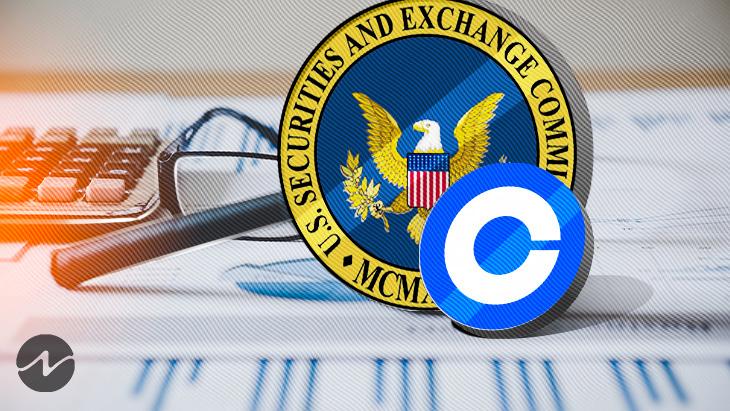
2 minute read
Taking the Bull By Horns
by coin gabbar
While informing its customers about the developments, Coinbase shared that SEC has given it a "Wells notice" regarding an unknown portion of its listed digital assets, Coinbase Prime, Coinbase Wallet and Coinbase Earn staking services. The notice is a means of telling a company that it is recommending the SEC take action for possible securities law violations.
Coinbase has provided multiple proposals to the SEC over several months, all of which the SEC ultimately refused to respond to. In the report, Coinbase clearly stated that rulemaking and legislation are better tools for defining the law for the industry than enforcement actions, but if necessary, it welcomes the opportunity for Coinbase and the broader crypto community to get clarity in court. This statement made it clear that Coinbase would be pursuing legal action against the SEC to finally force the regulatory authority to clarify its stance on crypto regulations.
Advertisement
In response to the SEC's Wells Notice, Coinbase has presented a strong defense, arguing that an enforcement action would present major programmatic risks to the Commission. The company asserts that the extensive factual record, in this case, does not support enforcement and that the staff's case rests on unsupported and untested legal theories. Moreover, Coinbase believes that the staff's novel legal theories would be foreclosed by the major questions of doctrine, due process, and equitable defenses. In the company's view, pursuing an enforcement action would be imprudent when there are alternative paths available.

Coinbase also contends that the staff's enforcement action would fail on the merits because the company does not list, clear, or effect trading in securities. The company argues that Coinbase Wallet is not a broker and that Coinbase's staking services do not constitute a securities offering. Coinbase maintains that it operates a cryptocurrency exchange and that its products and services are subject to regulation under the Commodity Exchange Act. The company believes that the SEC's position is inconsistent with the regulatory framework established by Congress and that pursuing enforcement against Coinbase would be a misapplication of the law.
Why Did Coinbase Sue the SEC?

Coinbase has also filed a lawsuit against the SEC to compel it to make public its decision on a petition made by Coinbase over a year ago. In July 2022, Coinbase submitted a petition to the SEC requesting that they consider existing SEC frameworks to regulate digital assets like cryptocurrencies. However, the regulator has not publicly responded to Coinbase's petition, which has led to the exchange taking this legal action.

According to Coinbase's Chief Legal Officer, Paul Grewal, the SEC's recent statements and actions suggest that they have already made up their mind about denying the petition. The lawsuit, therefore, seeks to force the SEC to reveal its decision on the matter. The petition and subsequent lawsuit are being seen as a reply to its enforcement actions the exchange and holding the agency accountable for its actions.

In a statement, Grewal emphasized the importance of regulatory clarity, stating that "regulatory clarity is overdue for our industry." This lawsuit marks Coinbase's first formal move against the SEC, and this tussle between the two giants is not expected to end any time soon without reasonable developments in the current regulatory standards of cryptocurrencies. While the SEC has a duty to protect investors, it must also balance this with fostering innovation and supporting new technologies. Coinbase's lawsuit sends a clear message to regulators that the industry needs clarity and transparency, and it is time for the SEC to provide it.










